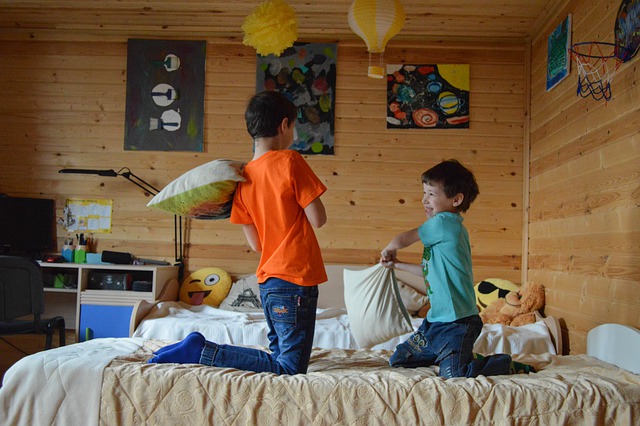Children reach almost seventy-five percent of their mental development by the time they are 4 years old. All children have an inborn motivation to learn, however, each child learns at his or her own pace. Children learn through active participation in different activities, by engaging their all five senses. They like to repeat an activity over and over so as to perfect newly acquired skills. During the process of learning, children learn good things as well as bad things. Disciplining your child can be a daunting task.
How to Discourage Your Child When He/She Starts Hitting
When John joined preschool, he was excited. However, a week later, he did not want to go to school. His parents tried to appease him with goodies, but he did not back down. Parents then forcefully took him to school. The next day, he got a fever. Later, they learned some of the kids in the school hit him. Children hitting may lead to serious consequences.
I’m not raising children. However, from my observation of child behavior, I have found children as young as 10 months old hit. How they nurture this habit is an interesting phenomenon. To find out how children develop hitting behavior and how this problem can be handled, I interviewed Child Psychologist and Early Childhood Development, expert. Here are the findings.
Why Do Children Hit?
They may be emulating the behavior from their surroundings.
They want to express frustration.
They might be experiencing physical problems.
They are trying to gain attention.
They want something.
They are observing cause-and-effect phenomena.
They are telling about their uncomfortable situations.
They are jealous.
How to Discourage a Child from Hitting
You have to take care of your child’s wants and wishes. A child is a distinct individual, his wants and wishes are as important as yours.
Try to avoid situations that prompt aggressive behavior in children. Do not force your child to do what you want.
Usually, children do not follow negative instructions. Instead of saying don’t do this thing, divert your child’s attention to other creative activities.
Rewarding and punishment are the two basic ways to discipline a child. However, you have to remember, spanking and other forms of corporal punishments are detrimental.
Study your child’s behavioral pattern, and act accordingly.
Ways to Discipline Your Child
Children may also hit themselves. Don’t overreact to such a situation, be gentle and engage him/her in other creative activities. Since the toddlers have limited communication skills, they might hit themselves when upset, or want something.
A child could develop hitting behavior when he/she is ignored, this happens especially when there is a younger child in the home, or parents are talking without caring what the child is trying to say. When the child does not get attention, he/she becomes upset or jealous. To overcome this problem, don’t let your child be unattended.
Sometimes when you overreact while your child is hitting, he/she might be encouraged. Try to handle this situation calmly. Remember, negative instruction many times are counterproductive. When you say don’t hit, your child will probably ignore you. However, you can make him/her understand hitting is bad by explaining when he/she hits, another person will feel pain.
Occasionally punishing your children may also yield good results. However, you have to tell your child he/she is not being punished but experiencing consequences of his bad behavior. Reward your child whenever he/she does something good. Rewarding may encourage your child to nurture good manners.
How to Discipline Your Child
While hitting may be normal behavior, it may also indicate a dormant anti-social attitude. You have to differentiate biologically conditioned behavior and clinically abnormal behavior.
If you are a highly patronizing parent, your child may develop hitting habits just to annoy you. If you want to discipline your child, you have to respect him/her.
If you are raising a single child, he/she may develop a possessive attitude. Help him/her to socialize by talking to children gathering.
Don’t ignore your child’s unusual behavior because it may later develop into a major behavioral problem.
When you take interest in your child, you may get insights into his/her behavioral pattern thus being able to assist him/her overcome difficulties.
If your child’s teachers and neighbors inform you about your child hitting behavior, don’t ever hit or scold him/her in front of other people.
It is necessary to instill values and principles in your child and base the parent-child relationship on mutual trust and friendship.
Are you raising a child who shows tantrums?
